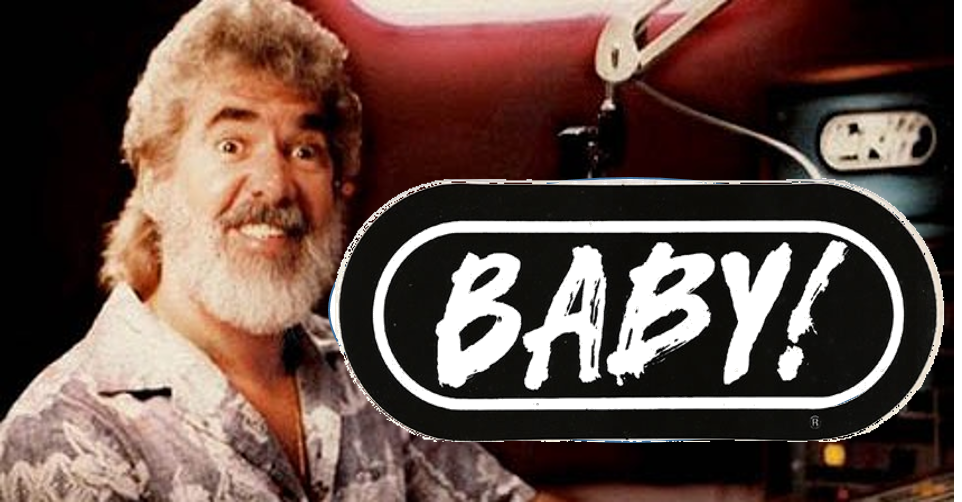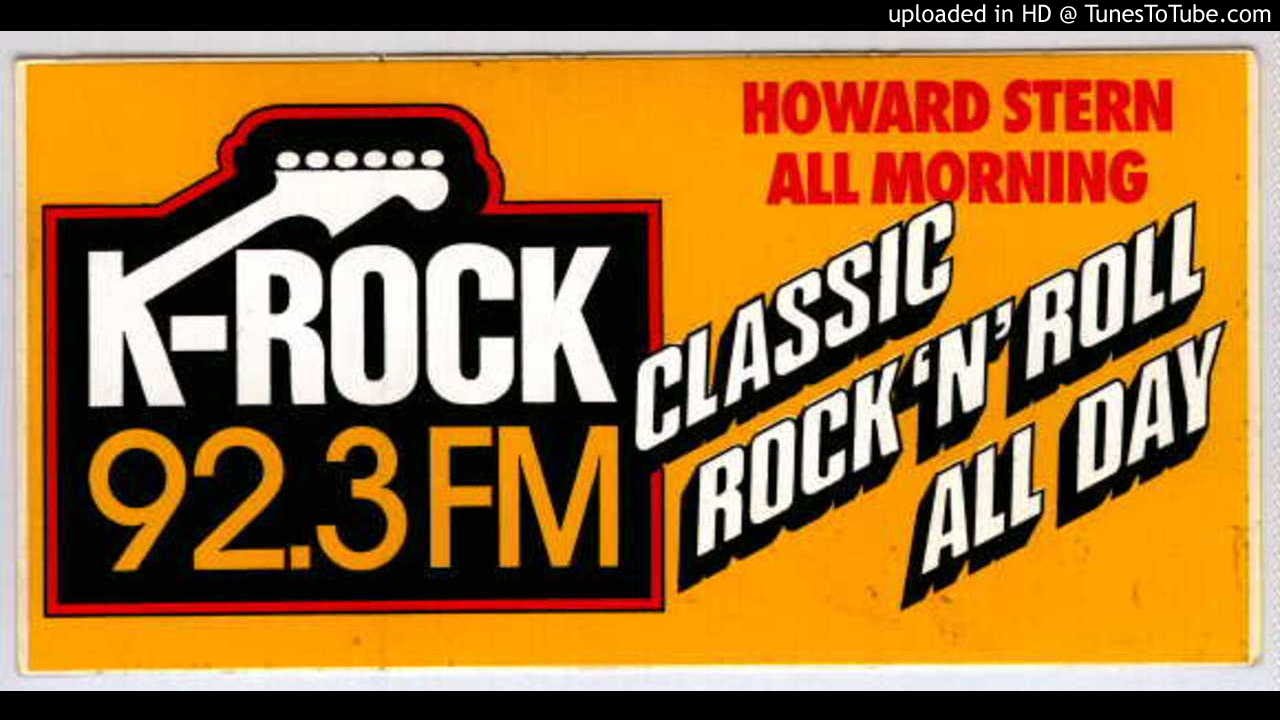
Back in my early WRIF days, we found ourselves in a rather unique situation for rock radio during that time. We were amassing a great talent lineup to complement the most successful artists and bands on the planet. It was a potent combination, and it explained why great rock stations during those days often had dominant ratings.
At WRIF, we had a strong lineup all 24 hours a day. The overnight guy and host of “The RIF Rock Cafe,” Carl Coffey, could have done morning drive on most other rock stations. Daypart by Daypart, we had a superstar lineup.
 But in afternoon drive, we had our anchor, our cleanup hitter, Arthur Penhallow. Art had been a fixture in p.m. drive pretty much from the station’s beginnings. He was the face – and voice – of the radio station.
But in afternoon drive, we had our anchor, our cleanup hitter, Arthur Penhallow. Art had been a fixture in p.m. drive pretty much from the station’s beginnings. He was the face – and voice – of the radio station.
In the early years, all the other jocks used the same call letter cadence Art made famous. And over the years, Arthur coined phrases like “BABY!” and “The HOME of Rock N’ Roll” that became marketing statements and calling cards for the brand.
So, every few years or so, it was contract drama time. Would Art re-sign? How much would it cost us to retain him? Would another station in town throw a bigger deal at him? As the PD during one of these times, I can admit it kept me up at night.
To calm me down (and perhaps set me up for the possibility there would be no contract extension), my GM often reminded me, “Remember, no one’s bigger than the radio station.”
Translation: If we lose him, life will go on.
Really?
The fact is, every personality at the radio station needs to be managed differently. A “one size fits all” mandate for creative types rarely works well.
For inspiration, let’s look at what’s going on in the world of sports, often analogous to what happens in radio.
In these topsy-turvy unpredictable 2020 sports seasons, all bets are off. But there’s one thing you can count on – multiple job openings for managers and coaches. The MLB playoffs are still going on, the NFL season is in full swing, and as the NBA season has now come to an end, there are several coaching availabilities.
One of the recent opportunities was created when the Houston Texans football team fired their general manager and head coach at the same time. Actually, it was an efficient termination because one guy – Bill O’Brien – was holding down both jobs.
But it’s the reason for O’Brien’s exit that should resonate for radio programmers. The Texans were off to an abysmal 0-4 start during a season in which they have the personnel to be very competitive. But a losing record wasn’t the only reason O’Brien lost his gig(s), and that provides a cautionary tale for all managers of talent.

The inside scoop is that O’Brien got himself into a shouting match with team star J.J. Watt a few weeks back. According to other players and team personnel, that was when O’Brien “lost the team.”
Would O’Brien have suffered the same result had he gotten into an argument with the placekicker, the backup quarterback, or the trainer? Probably not. But when you piss off the “franchise player,” even the head coach/GM – or in the case of radio, the program director – may soon be filing for unemployment.
And the interesting thing about Watt is that he’s not the star quarterback, the dependable running back, or the dangerous free safety. He’s a defensive end. But not just any guy on the “D team.” Watt has run the NFL’s respected “Defensive Player of the Year Award” three out of the last five years. Sports Illustrated named him “Sportsperson of the Year” in 2017. When the cliché “game-changer” is used, it actually describes this guy – unusual for a defensive player.
So, Watt is in a class by himself, despite what many other players – or members of the airstaff – like to think. When it comes to talent, not everyone is treated equally. Some make more money than others. Some have better ratings than others. Some have cultivated deeper relationships with sponsors. Some have acquired skills that make them more valuable to the team…er, radio station.
And some, frankly, are the franchise.
That explains the protracted negotiations between Howard Stern and SiriusXM, an event that happens every few years during the year prior to the end of each contract cycle. Like every one of these episodes, Stern’s back and forth with his employer has gone public – it’s been a subject of many news reports and entertainment features.
While it’s always been this way in sports and in entertainment, the trend to making sure the “franchise player” wasn’t just signed up – but happy – has been in place for decades. In Howard’s case, it was his relationship with executive Mel Karmazin (pictured above right) that has set the tone for much that has followed in the industry’s connection with its prime talent.
More than any other owner I’ve ever encountered, Mel was a realist. He understood Howard’s importance to the enterprise. And he didn’t try to couch or rationalize it any way. For those of you who haven’t worked in radio for more than a couple decades, you may have missed “The Mel Era.” Suffice it to say, he was one of the few radio execs who you could call by his first name, and everyone knew who you were talking about.
Mel
Early on in my consulting relationship with then Classic Rock-formatted WXRK – K-Rock – New York, Howard was regularly staying on the air long after his 10 a.m. “air shift.” The end of Howard’s show was different every day. Sometimes, the show wrapped up at 11 a.m. But other days, it went well beyond that. In my opinion, one of the reasons why midday ratings lagged was that our music hours came too late after most people started their workday.
 After whining about this to PD Mark Chernoff, he suggested we “talk to Mel” about the ratings disparity, and Howard’s irregular show endings. And so we did.
After whining about this to PD Mark Chernoff, he suggested we “talk to Mel” about the ratings disparity, and Howard’s irregular show endings. And so we did.
I made my case. Mel listened patiently. And then he pulled out the most recent Arbitron rating book, and immediately turned to the hour-by-hour page. As he started reading through each hour’s share, there was a familiar pattern. Stern’s ratings were great 6-10 a.m., of course, held pretty steady through the 10 a.m. hour before beginning to tail off precipitously through midday – and beyond.
Mel looked up from the rating book, and asked, “If we pulled Stern off the air at 10, are you willing to bet that your stupid music can generate the same ratings Howard earns in the 10 a.m. hour? If you are, just tell me.”
End of conversation.
Even back in 1988, Howard was the franchise player, and deserved different treatment than the other jocks – a truly talented group – that was on K-Rock the rest of the day. Same with Tom Brady, LeBron James, and apparently, J.J. Watt.
In recent weeks, there have been consistent headlines like this one in Yahoo! Finance:
“If Howard Stern Bolts From Sirius, Here’s How Much The Stock Could Tank”
Or this one in Bloomberg:
“Howard Stern Nears Deal With SiriusXM For Around $120 Million A Year”
Aside from bandying about a higher number than “The King of All Media” has ever been paid before, the story speculates Spotify has already taken a run at Howard. After the reported $100 million Spotify gave to Joe Rogan, it’s not implausible.
True? Rumors? Who cares? Because it all cements Stern’s position as the face of the franchise.
In the same story, SiriusXM’s outgoing CEO Jim Meyer makes this statement about the negotiations:
“I can tell you that we understand the economics very, very well, for instance, of content like Howard Stern. I can look every investor in the eye and tell them that is a good investment for SiriusXM.”
Is Stern bigger than “the radio station?” Actually, in this case, a network with in excess of 34 million subscribers on a network with more than 150 different channels?
Part of Mel Karmazin’s legacy is this idea that a radio station is only as good as the power of its personalities. During the economic maelstrom of the last decade or so, some broadcasters have lost sight of that tenet.
But as the competition around radio broadcasting has exponentially grown, it has become even more apparent that a reliance on music at the expense of franchise personalities will fall woefully short.
In just a few shorts weeks, we’ll be headed into a new year. And if past is prologue, there will be more layoffs in the plans. And because it’s 2020, we’d all be naivé and short-sighted to think this year will be any different from years past.
Broadcast radio execs will once again have difficult decisions to make. At what point do cost savings in salaries and benefits become another round  of “burning the furniture?”
of “burning the furniture?”
During the Zoom focus group we conducted for a Radio Show session a couple weeks back, I asked respondents to define radio’s “job to do” in an environment where there are streaming stations, playlist services, podcasts, satellite radio, and myriad other content choices available.
And without hesitation, several pointed directly to their loyalty to radio personalities, especially during these COVID times. It is impossible to quantify the power of a friendly, reassuring, familiar voice, especially during severe turbulence. Most told us they feel a palpable sense of loyalty to the morning show they listen to most.
That’s no surprise. The really impactful personalities – daypart aside – build connections with listeners, communities, and advertisers. More often than not, they “get it” – they know the importance of hard work, prep, socializing, and showing up – all components that define greatness.
Since firing O’Brien, the Houston Texans have finally won a game, and have been more competitive. Their interim coach, Romeo Crennel, and their interim GM, Chris Olsen, may be getting the job done – at least for now.
J.J. Watt is not interim. Yes, he’s bigger than the football team.
Thanks to Keith Cunningham.
- What To Do If Your Radio Station Goes Through A Midlife Crisis - April 25, 2025
- A 2020 Lesson?It Could All Be Gone In A Flash - April 24, 2025
- How AI Can Give Radio Personalities More…PERSONALITY - April 23, 2025




Great blog. So very true. Talent are not easily duplicated. Music is easy to duplicate.
And if there’s anyone who knows this so well, it is you, my friend. Thanks for the comment.
Well-timed blog Fred. During my time in Detroit, we knew when Arthur P was negotiating because the Hawaii vacation got extended. 🙂 Deep down, we were cheering for him.
You DO remember. Yeah, that was when Art was playing hard to get.
Great read…enjoyed it very much
Thanks, Kim!
And to add on to Howard’s legacy—I once asked Mel for some Marketing money for K-Rock. He said…”You have your Marketing Money: His name is Howard Stern”. Point well taken. We finally started “20 Song Music Marathons” (thank you Andy Bloom and Fred) after our long commercial break at the end of the Stern show and that did make a difference on the music end!
Why is it I cannot remember what I had for dinner last night, but I can replay the entire dialogue of every meeting I had with Mel? Great to hear from you, Mark.
My favorite bumper sticker of all time –
“Jeff Daniels IS WLS”
It was a big responsibility, but if you were employed by a radio station that embraced that philosophy, you were lucky.
I was lucky.